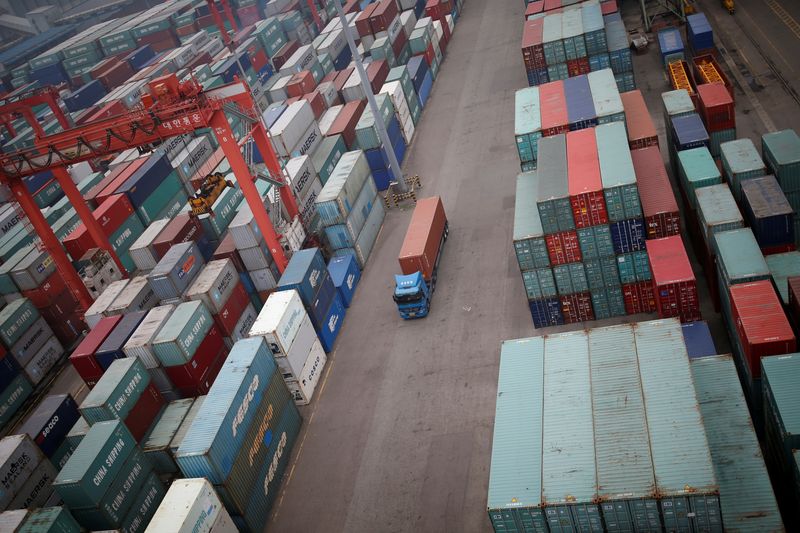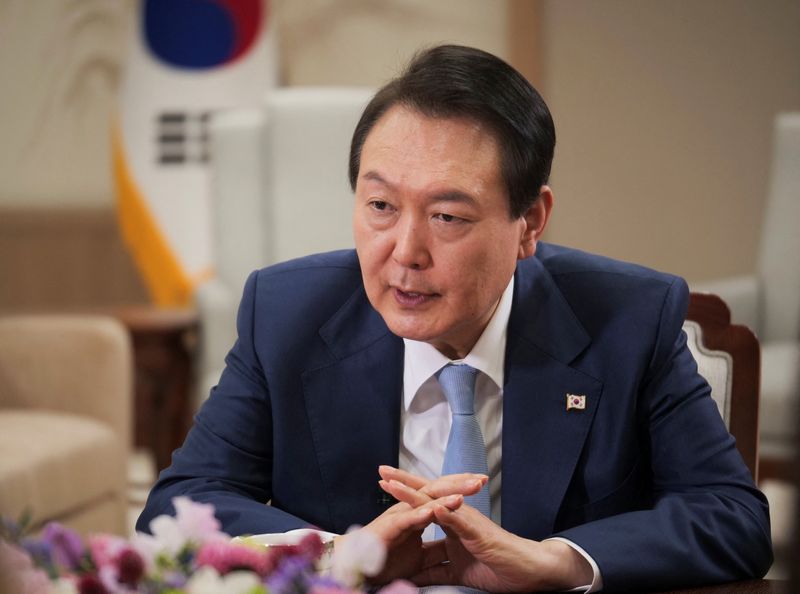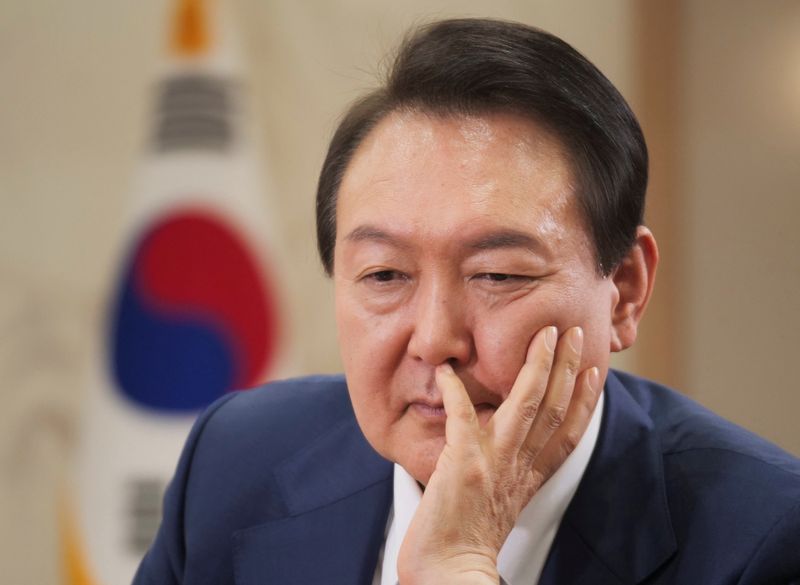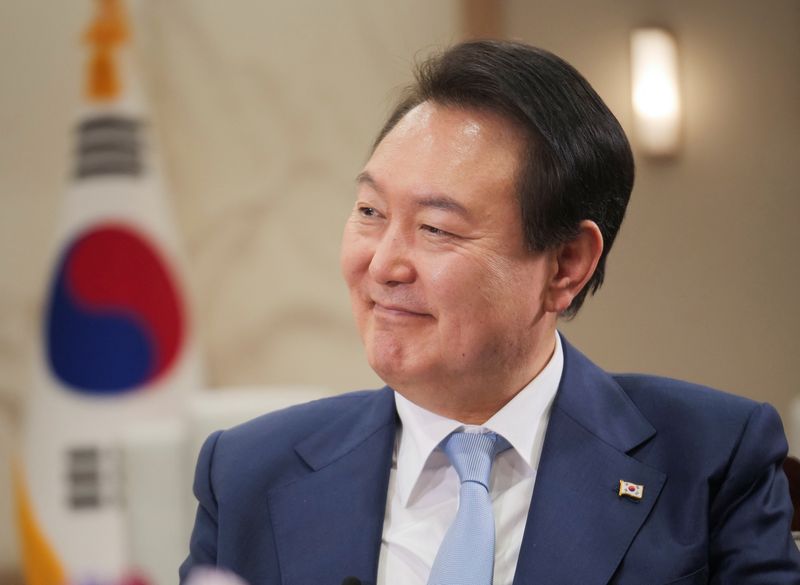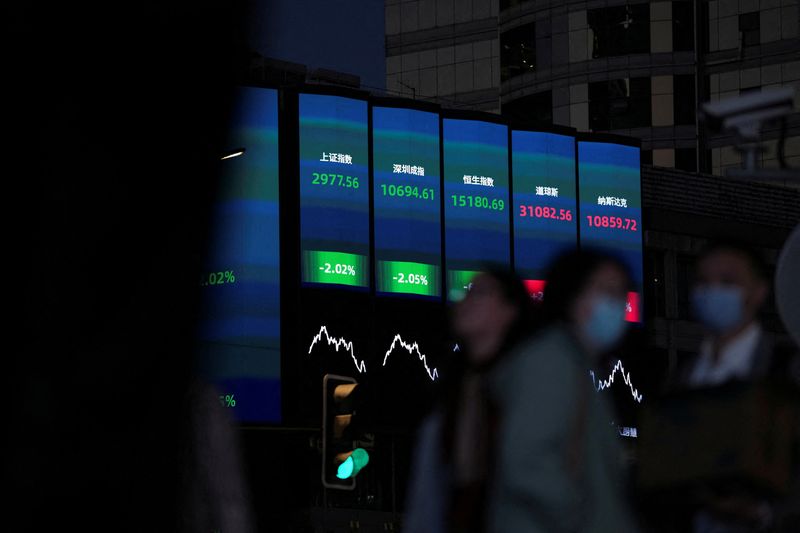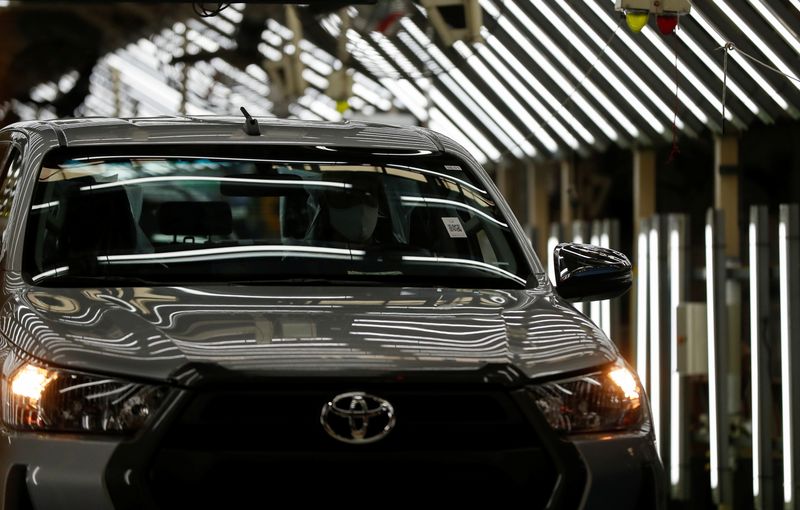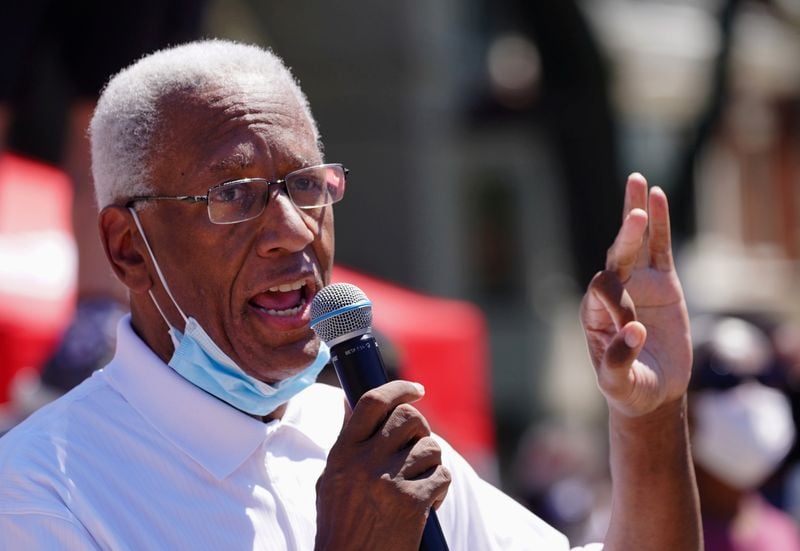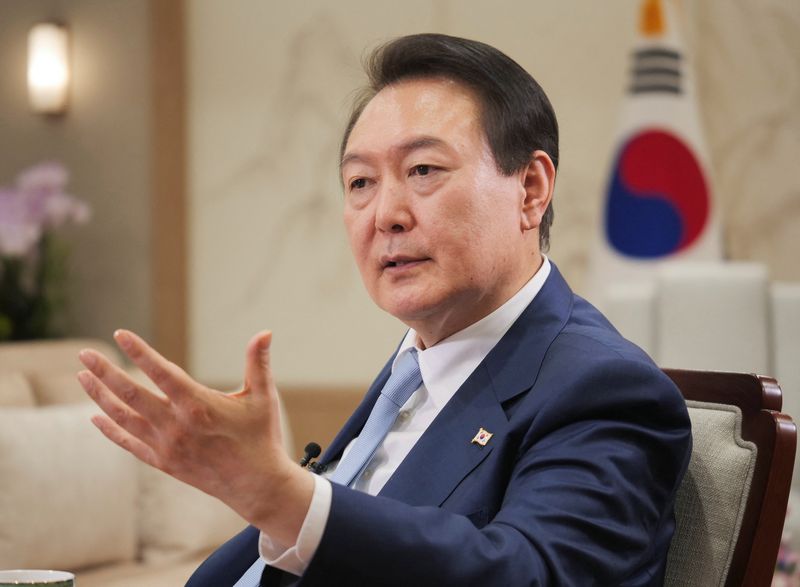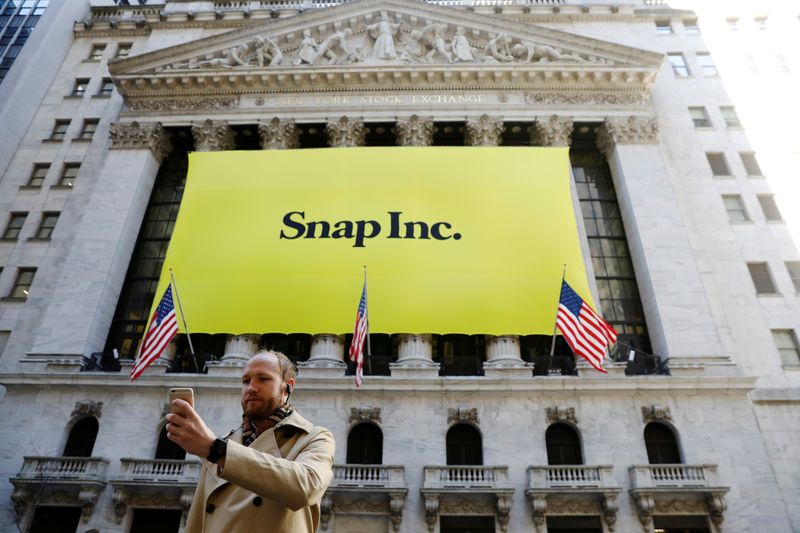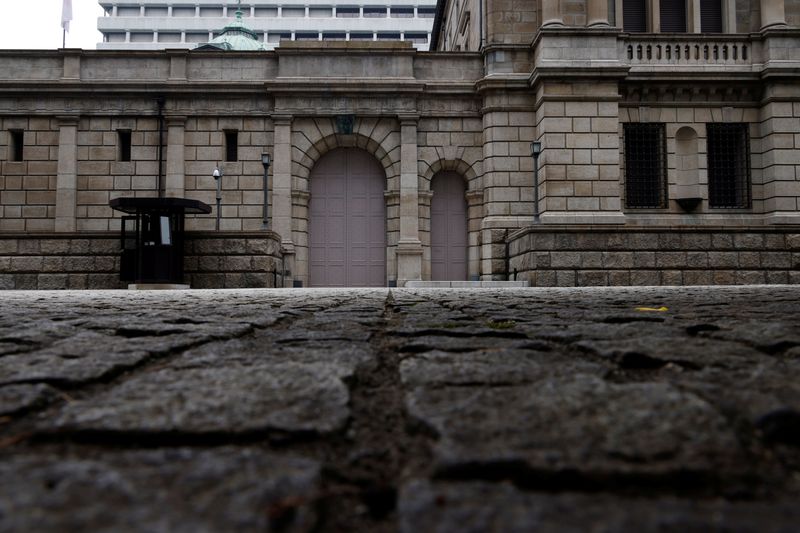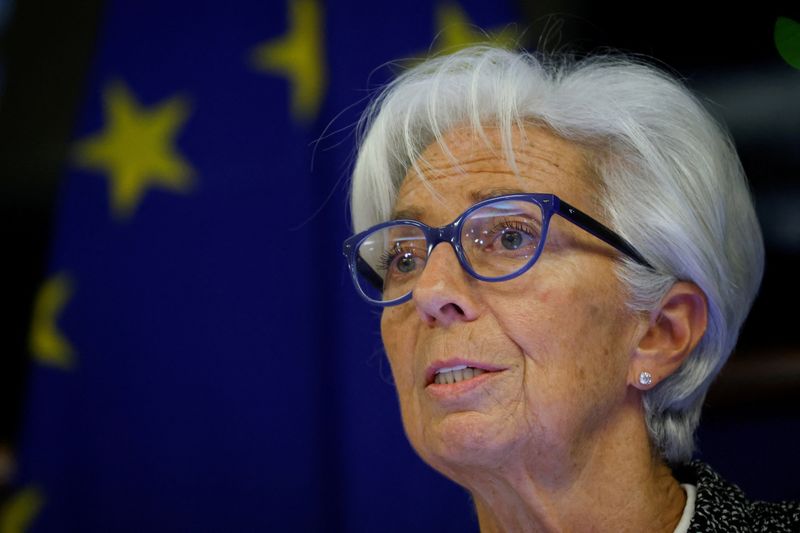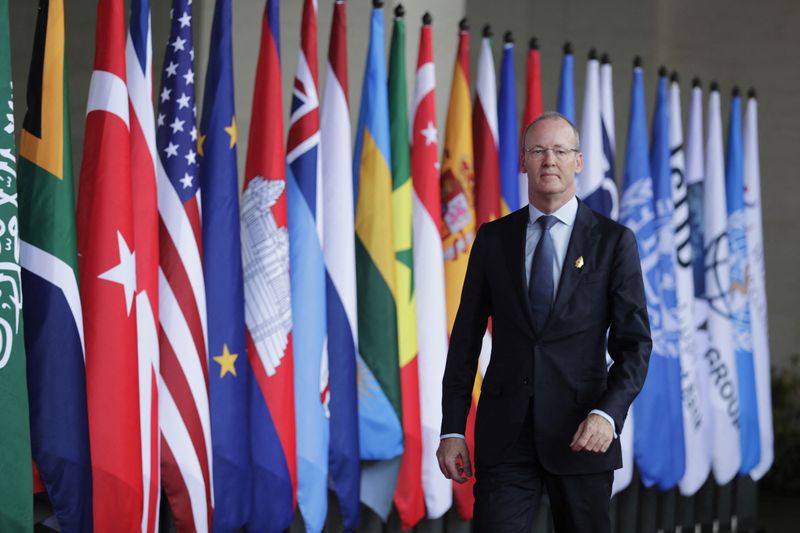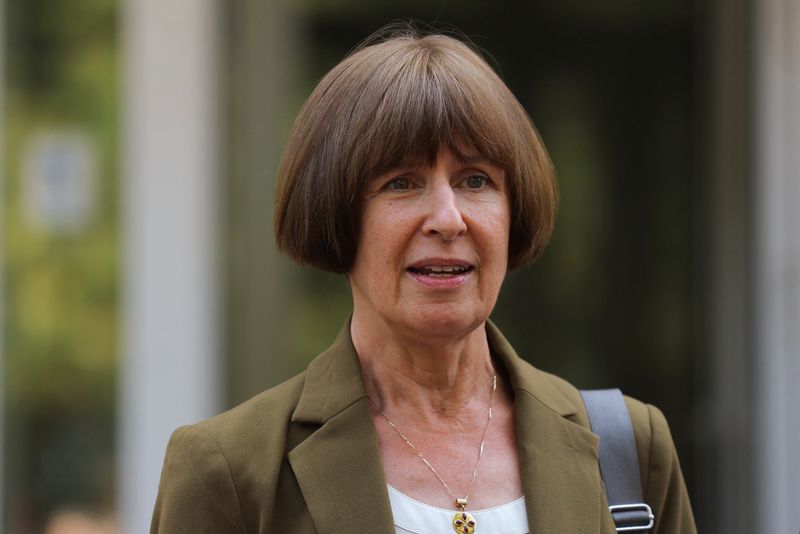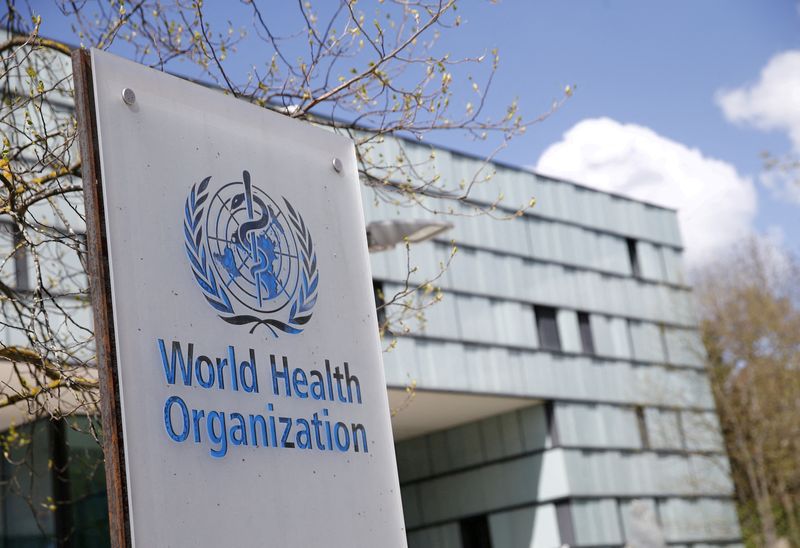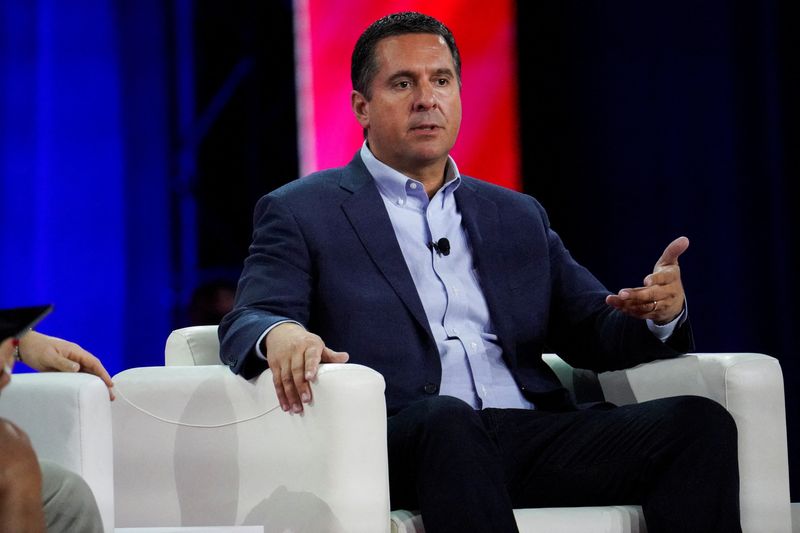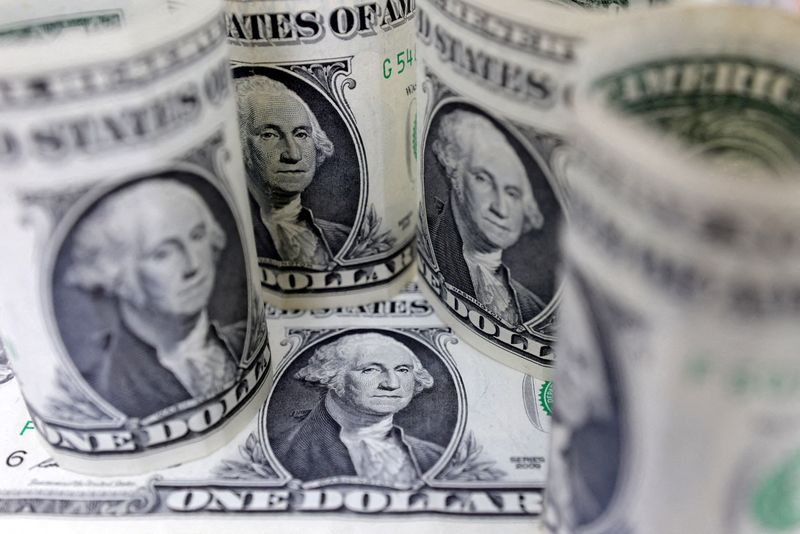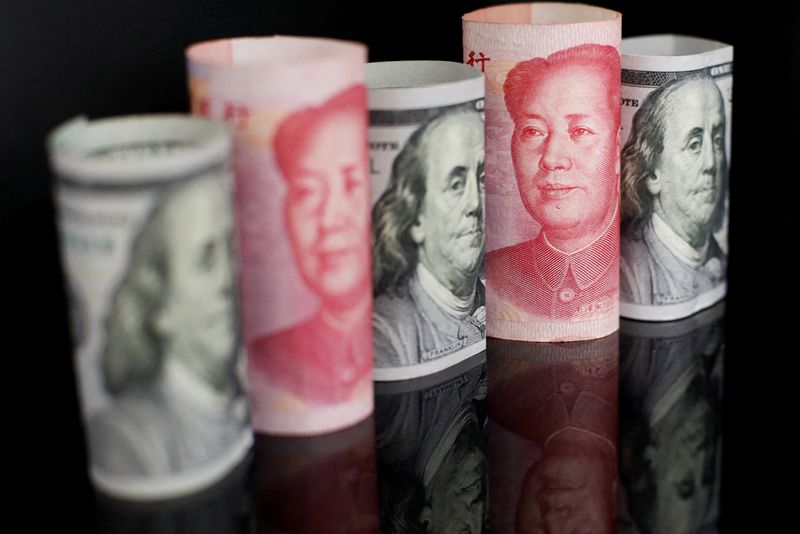By Jihoon Lee
SEOUL (Reuters) – South Korea’s exports were set for a second month of declines in November and by the steepest pace in 2-1/2 years, hurt by an economic slowdown in China and a downcycle in the tech industry, a Reuters poll showed on Tuesday.
The country’s outbound shipments were projected to have fallen 11.0% in November from the same month a year ago, according to the median forecast of 20 economists – the worst annual slump since May 2020, and accelerating from a 5.7% loss in October.
The two straight months of year-on-year declines followed a 23-month growth streak through September.
“Exports to China are declining at an accelerating pace due to the country’s economic slowdown, while semiconductor exports, which account for about a fifth of South Korea’s total exports, remain sluggish,” said Chun Kyu-yeon, an economist at Hana Securities.
“Given the global economic slowdown and falling trade volume, we expect South Korea’s exports to continue their declining trend through the first half of 2023.”
During the first 20 days of this month, South Korea’s total exports shrank 16.7% year-on-year. By product, semiconductors fell 29.4%, and by destination, shipments to China – its biggest trading partner – dropped 28.3%.
Imports were expected to have grown only marginally, by 0.2%, just enough to extend their run of gains to a 24th month but much slower than the 9.9% growth a month before, according to the median forecast from a range of -5.0% to +6.4%.
Overall, the trade balance is set to remain in deficit for an eighth consecutive month, putting it on track for the first annual shortfall in 14 years and the largest-ever.
Full monthly trade data is scheduled for release on Thursday, Dec. 1, at 0900 in local time (0000 GMT).
The survey also forecast the country’s consumer price index for November to be up 5.1% than a year ago, cooling from 5.7% in October and hitting the weakest annual rate in seven months.
On South Korea’s factory output, economists expected production to have extended its downturn for a fourth month in October, falling 1.0% on a seasonally adjusted monthly basis, after a 1.8% decline in September.
(Reporting by Jihoon Lee in Seoul, Polling by Vijayalakshmi Srinivasan and Veronica Khongwir in Bengaluru; Editing by Shri Navaratnam)
